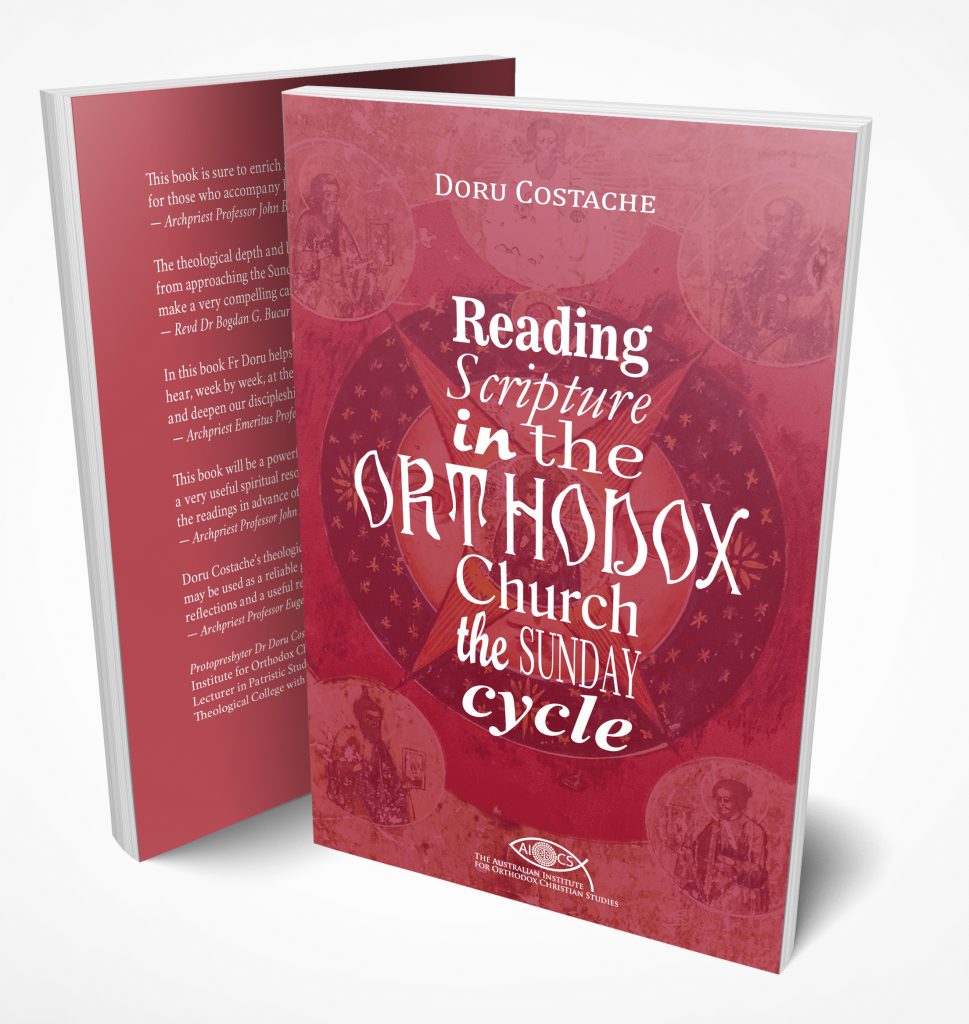The AIOCS Short Courses 2021
[Free content © AIOCS]
The Pre-Lenten Narrative: Preparatory Reflections
The fifth part: The Thirty-Sixth Sunday after Pentecost
17 March
Protopresbyter Dr Doru Costache
The scriptural readings prescribed for this Sunday: Romans 13:11–14.4. Matthew 6:14–21.
An interpretive framework: Doru Costache, Reading Scripture in the Orthodox Church: A Diary (Sydney: AIOCS Press, 2018) 89–91.
Summaries
Romans 13:11–14.4 Salvation is at hand and all should wake up from their slumber to seize it. Time flies. Christians should therefore prioritise what pertains to salvation, turning from the deeds of darkness and reconfiguring their lives in ascetic fashion. They should put on the armour of light and clothe themselves in the Lord Jesus Christ. Only then will differences between people cease to hinder their love for one another, whether their faith is weak or strong—whether they eat anything or just vegetables. Above all, they should not judge one another; there is a Lord who judges all.
Matthew 6:14–21 Forgiveness presupposes reciprocity. We cannot expect forgiveness if we do not forgive. Forgiving our neighbour guarantees the Father’s forgiveness of us. In turn, fasting does not mean putting our devotion on display. When we work discretely to change ourselves, we receive divine reward from above. Furthermore, since the heart is the location of our treasure, we should gather our wealth in heaven, which is where our hearts should be. Earthly goods are easily wasted; it is counterproductive to attach ourselves to them.
Wisdom
The fifth stage of pre-lenten preparation raises once again the matters of fasting and the purpose of the Christian life. We should be mindful that fasting is an exercise for life, not its goal. Fasting conditions our progress in experience and wisdom. Above all, fasting should lead to sheer love for others, following the Lord’s example. Christ surrendered his life for all people, loving them all, regardless of their status and habits. In so doing, he established the norm for the Christian way of life. Fasting is about replicating, within the bounds of our capacity, Christ’s way of loving people. But could anyone attain that awesome measure, which Saint Maximus described in terms of loving all people equally (Chapters on Love 1.61)? I believe that the answer is in lenten ascesis or a lenten way of practicing ascesis, not for outward display, but internally and consistently pursued throughout life. The answer, then, lies in the conversion of life which Saint Paul intimated. It is a matter of leading a Christlike life under the Lord’s guidance. Jesus is the example. He loved all people without being loved in return. But what could make us love when all are against us? It is the patient reworking of our life, which presupposes a gradual transformation from darkness to light. Initially, this change in the spiritually awoken draws upon awareness that only who forgives is forgiven. As we advance, change finds motivation in the realisation that the enemy is not a human being, whether strong or weak in faith. For the spiritually experienced and enlightened, the enemy is within, never the others. It is the passions which obscure our minds and hearts. To defeat this enemy, we must prioritise heavenly goods, not things of this world which stir the beast in people: envy, hatred, division, and violence. Against this backdrop, fasting is a test of freedom and an exercise of liberation—from the inner barriers that keep us away from both God and neighbour. It is a path to heaven, where the heart should be.
Message
When they free themselves from the passions, God’s children can truly be Christlike, loving all people equally.
Keywords
awakening, conversion, enemy, fasting, heart
17 March 2021 © AIOCS
Please support our not-for-profit ministry (ABN 76649025141)
For donations, please go to https://www.paypal.com/paypalme/aiocsnet or contact us at info@aiocs.net


